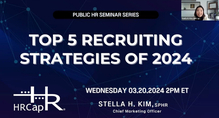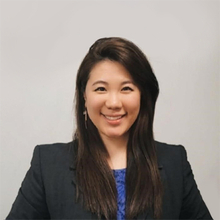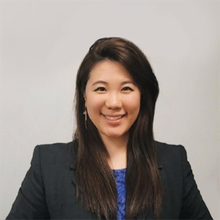
최신기사
[전문가 칼럼] 마그네티즘을 이루는 8가지 자기장…사람과 조직을 움직이는 힘
전 세계 조직이 동시에 흔들리고 있다. 경제 불안, 기술 전환, 세대 충돌, 디지털 피로, 정서적 단절, 글로벌 공급망 재편과 규제 변화는 모든 조직이 구조를 재정비해야 한다는 신호다. 이제는 제품보다 사람, 전략보다 구조, 속도보다 방향성이 생존을 결정짓는다. 조직은 더 민첩하게 움직이고, 더 깊이 연결되며, 유연하게 확장되어야 한다. 그 해답은 8가지 자기장(Magnetic Force)에 있다. 이는 조직이 위기 속에서도 지속 성장하기 위해 갖춰야 할 생존 전략이다. 1. 정렬(Alignment): 모든 위기의 본질은 내부 불일치다. 리더의 전략과 실행 간의 간극은 조직 방향을 흔들 수 있다. 가치관, 리더십 철학, 성과 지표가 수직·수평적으로 정렬될 때 실행력이 생긴다. 이를 위해 리더십 평가, 문화 진단, 역량 기반 채용, OKR(Objectives and Key Results) 시스템을 갖춰야 한다. 2. 흡인력(Attraction): 채용은 단순한 모집이 아니다. 다언어·다문화 인재일수록 보상보다 성장 가능성과 소속감을 중시한다. 조직은 브랜드보다 철학과 방향성을 제시해야 하며, 실천적 문화가 인재를 끌어당기는 자기장이 된다. 3. 양극의 균형(Polarity): 전통과 혁신, 본사와 로컬, 위계와 민첩성-이 상반된 가치는 통합의 자산이다. 조직은 교육, 360° 리더십 피드백 등을 통해 극단 사이의 전략적 균형을 설계해야 한다. 4. 연결(Connection): 하이브리드 근무와 비대면 커뮤니케이션은 정서적 안정과 신뢰 기반을 약화한다. 조직은 관계가 아닌 연결을 설계해야 하며, 감정적 안정과 상호 이해를 중심으로 신뢰를 구축해야 한다. 5. 네트워크(Network): 고정된 조직도는 더는 유효하지 않다. 연결과 협업이 확장되는 생태계처럼 작동해야 한다. 하나의 인재 매칭이 조직 전체에 전환점을 만들도록 전략적 파이프라인과 인재 풀, 후계자 육성 구조에 투자해야 한다. 6. 지속회복력(Resilience): 회복탄력성은 선택이 아닌 생존의 기초 체력이다. 지속 가능한 조직은 감성지능과 학습 민첩성을 기반으로 회복의 구조를 갖춰야 한다. 이를 위해 심리 안전 진단과 탄력성 기반 교육, 감정 코칭이 필요하다. 7. 파괴적 혁신(Disruption): AI, 자동화, 원격 근무, 신기술은 기존 질서를 흔든다. 강한 조직은 기술을 수용해 스스로 질서를 재설계한다. GPT 기반 채용 도구, 디지털 전환, 일의 재정의는 더 이상 미래가 아닌 현재의 전략이다. 8. 진화적 전환(Transformation): 변화는 표면을 다듬지만, 전환은 존재 이유를 재정의한다. 지속 성장하려면 ‘무엇을’과 ‘어떻게’가 아닌 ‘왜’를 명확히 해야 한다. 사명 중심 리더십과 철학 기반 조직 체계를 통해 전환이 이뤄진다. 이 8가지 Magnetic Force는 단절을 연결로, 혼란을 질서로, 성공을 유산으로 전환시키는 구조다. 이제는 어떤 전략이 아니라 어떤 구조를 갖췄는지가 생존을 결정짓는다. 그리고 그 구조는 사람 중심이어야 한다. 글로벌 서치 및 헤드헌팅 전문기업 HRCap은 지난 25년간 이 자기장 전략을 실제 기업에 적용해 왔다. 이제 HRCap 2.0은 단순한 서치 회사를 넘어, 미래를 정렬하고 전환하는 올인원(All-in-One) 글로벌 Total HR 파트너로 거듭나고 있다. 스텔라 김 HRCap, Inc. 북미총괄 ━ [Expert Column] 8 Magnetic Forces That Power People and Organizations How Structure Defines and Shapes Impact in a Shifting Era Organizations around the globe are experiencing dramatic shifts. Economic instability, technological transformation, generational divergence, digital fatigue, emotional disconnection, and shifting regulatory landscapes are compelling companies to urgently re-evaluate their organizational structure. Today, people matter more than products, structure outweighs strategy, and direction proves to be more critical than speed. To survive and thrive, organizations must move with agility, connect with intention, and scale with resilience. The answer lies in the 8 Magnetic Forces, a transformative structural framework that drives sustainable growth, organizational longevity, and enduring human impact. 1. Alignment Every disruption begins with internal misalignment. A gap between vision and execution can derail even the best strategies. True alignment comes when values, leadership philosophy, and performance metrics are integrated vertically and horizontally. Organizations must implement leadership assessments, cultural audits, competency-based hiring, and OKR (Objectives and Key Results) systems to ensure strategic precision and executional cohesion. 2. Attraction Recruitment is no longer a transactional process, but a magnet of purpose. Today’s multilingual and multicultural professionals seek belonging and growth over compensation. Organizations must present not just a brand, but a bold philosophy and clear direction. Culture, when consistently practiced, not just promoted, becomes the gravitational force that attracts and retains mission-aligned talent. 3. Polarity Innovation thrives in the tension between opposites: tradition and transformation, global strategy and local nuance, hierarchy and agility. These dualities must be viewed not as contradictions but as sources of strategic harmony. Leadership development, cross-cultural education, and 360° feedback systems help bridge extremes and build inclusive strength. 4. Connection Remote work and hybrid models have eroded trust and emotional safety. Organizations must now go beyond managing relationships to engineering true connection. Building sustainable trust requires intentional systems that prioritize psychological safety, shared empathy, and meaningful human understanding. 5. Network Static org charts are obsolete. Thriving organizations act like living ecosystems built on dynamic networks of collaboration and shared intelligence. A single right hire can become a catalyst for transformation. Strategic pipelines, diverse talent ecosystems, and succession development must be embedded into the organizational DNA. 6. Resilience Resilience is not just a soft skill but truly the core competency for survival. Resilient organizations proactively cultivate emotional intelligence and learning agility as foundational muscle. Structural resilience comes from embedding psychological safety, emotional coaching, and recovery-based learning frameworks. 7. Disruption AI, automation, remote work, and emerging technologies are now the norms. Competitive organizations embrace disruption as opportunity and proactively redesign their operating models. GPT-powered recruiting platforms, end-to-end digital transformation, and the redefinition of work itself must now be core capabilities, not future plans. 8. Transformation Change is incremental. Transformation is existential. While change updates systems, transformation redefines purpose. Sustainable organizations must not only ask what and how, but lead with why. Purpose-driven leadership and value-based organizational architecture are what drive enduring reinvention. Together, these 8 Magnetic Forces turn fragmentation into connection, volatility into structure, and fleeting success into lasting legacy. In today’s world, it is not the strategy, but the structure that determines whether an organization survives or thrives. And that structure must be fundamentally human-centered. Over the past 25 years, HRCap, a Top 10 Global Executive Search and HR Consulting firm, has applied this magnetic framework across global client organizations to build aligned, agile, and impact-driven teams. As we enter our next phase as HRCap 2.0, we are evolving beyond a search firm and emerging as a future-aligned, purpose-led All-in-One Global Total HR Solutions Partner. Stella H. Kim, SPHR HRCap – SVP, Head of Americas & Chief Marketing Officer 전문가 칼럼 마그네티즘 자기장 조직 방향 세계 조직 조직 전체 전문가칼럼 스텔라김 stellakim HRCap 에이치알캡
2025.06.11. 22:13

[전문가 칼럼] 레거시, 마그네티즘, 커넥션으로 AI 시대를 이끄는 기업구조
2025년, 기업의 수명은 점점 짧아지고 있다. 맥킨지 연구에 따르면 1958년 S&P 500 기업의 평균 수명은 61년이었지만 지금은 18년이 채 되지 않고, 연방 노동통계국(BLS)에 의하면 창업 후 25년 이상 생존하는 기업이 10%도 되지 않는다고 한다. 생존조차 보장되지 않는 시대에 지속성장 가능성은 전략이자 기업구조가 되어야 한다. 조직이 오래 살아남기 위해서는 단순히 효율적인 운영을 넘어서, 무엇을 기준으로 삼고, 어느 방향성을 갖고, 어떤 관계를 어디까지 유지하는가에 대한 끊임없는 질문과 해법을 찾는 기업구조 설계가 필요하다. 이 질문은 세 가지 테마, 즉 레거시(Legacy), 마그네티즘(Magnetism), 커넥션(Connection)으로 이어진다. 레거시는 전문성을 축적해 쌓아 올린, 부정할 수 없는 기준이다. 조직의 기준은 경험이나 기록뿐만 아니라, 수많은 판단과 실행이 반복되며 쌓인 전문성에서 비롯된다. 명확한 판단 기준을 가지고 누구도 부정할 수 없는 실력과 통찰이 지속적으로 축적될 때, 조직은 외부 충격에도 흔들리지 않는 내적 중심, 즉 단단한 레거시를 심어가게 된다. 마그네티즘은 영향력 있는 조직이 만들어내는 고유한 브랜드 에너지다. 이 자기장은 단지 높은 매출이나 유능한 마케팅만으로 형성되지 않는다. 조직이 지향하는 철학과 일상으로 실천되는 문화 속에서 자연스럽게 만들어진다. 특히 MZ세대를 중심으로 일의 의미와 조직의 가치가 더 중요해졌고, 이들은 조건보다 방향과 에너지에 끌리고 반응한다. 즉 방향성이 분명한 조직은 자연스럽게 사람을 끌어당기고, 가능성을 점화하며, 영향력을 확산시키는 마그네티즘을 만들어낸다. 커넥션은 단순한 관계가 아니라, 미래를 여는 연결의 열쇠다. 지속 가능한 커넥션은 정보가 아니라 맥락에서 시작된다. 즉 좋은 연결은 ‘누구를 소개했는가’ 뿐만 아니라, ‘그 연결이 어떤 가치로운 기회를 만들어냈는가’로 판단된다. 속도가 중요한 시대일수록 인맥은 더 쉽게 끊어질 수 있기에 기업의 네트워크 파워는 그저 숫자가 아니라, 중요한 관계를 얼마나 장기적으로 유지하며 동반 성장할 수 있는 파트너십을 확장하는 구조를 가지고 있는지에 달려 있다. 결국 레거시는 철학이고, 마그네티즘은 문화이며, 커넥션은 세대와 미래를 향한 사명이다. 조직은 살아남기 위해 구조를 설계하고, 성장하기 위해 기준을 축적하며, 의미를 남기기 위해 사회와 함께 움직여야 한다. 그래야 일반적인 존재를 넘어, 가치로운 브랜드가 되고, 산업의 선도적인 기준이 되며, 시대를 이끄는 상징이 되는 것이다. 글로벌 서치 및 헤드헌팅 전문기업인 HRCap은 25년간 이 세 가지 테마를 기반으로 기업 구조를 설계하고 다듬어왔다. 이제 HRCap은 또 다른 25년, HRCap 2.0 비전과 도약을 준비하며 지속 가능한 가치와 시대를 이끄는 상징적 브랜드로서의 다음 챕터를 써내려가고 있다. 스텔라 김 HRCap, Inc. 북미총괄 ━ [Expert Column] Building an AI-Proof Corporate Structure on Legacy, Magnetism, and Connection Corporate Value Shaped by Organizational Philosophy, Culture, and Mission The average lifespan of companies has continued to shrink significantly. According to a recent McKinsey study, the average lifespan of an S&P 500 company was 61 years in 1958, while today it is less than 18. The U.S. Bureau of Labor Statistics reports that fewer than 10% of businesses survive beyond 25 years. In an era where even survival is not guaranteed, sustainability must become a corporate strategy and structural imperative. Companies must go beyond operational efficiency and intentionally build an evolving corporate framework by continuously challenging and strengthening their foundational principles, strategic direction, and key relationships. At the heart of this structural framework are three core pillar themes: Legacy, Magnetism, and Connection. Legacy is the unshakable foundation of undeniably earned and deeply proven expertise. A true legacy is not simply built on longevity or accolades alone, but on the cumulative depth of experiences gained and expertise honed over time. When an organization commits to clear decision-making principles and consistently delivers distinctive insight with unwavering excellence, it cultivates a powerful inner core—a legacy—that remains steadfast even amid external market shocks. Magnetism is the unique brand energy radiated by influential organizations. This magnetic force is not driven by revenue or marketing prowess alone—it emanates organically from deeply held values and an authentic organizational culture. For the MZ generation, the meaning of work and sense of vocational mission now outweigh mere compensation. They are drawn not by conditions, but by purposeful direction and contagious energy. Organizations fueled by clear direction and values-based conviction naturally attract talent, ignite potential, and amplify collective impact through their magnetism. Connection is more than formed relationships—it is the key to unlocking the future. Enduring connections are not built on information, but on shared context and purposeful intent. The true strength of a connection is not measured by “who introduced whom,” but by the value it generates and the opportunities it catalyzes. In an age where speed can easily dilute relationships, an organization’s network power lies not in the number of contacts, but in its ability to cultivate and sustain long-term, mission-aligned strategic partnerships that evolve and scale together. Ultimately, legacy is the philosophy, magnetism is the culture, and connection is the mission that looks toward the future. An organization must intentionally architect its structure to survive, consistently build upon its core standards to grow, and consciously uphold social responsibilities to remain relevant to society. Only then can it transcend the ordinary, build a meaningful brand, set the industry benchmark, and become a defining symbol of its era. For the past 25 years, HRCap, a Top 10 Global Executive Search & HR Consulting firm, has been designing and refining its corporate structure deeply anchored in these three pillars. As we enter the next chapter—HRCap 2.0—we are boldly preparing for another 25 years, leading the future of work as a sustainable, symbolic brand that builds legacy, radiates magnetism, and drives connection. Stella H. Kim, SPHR HRCap – SVP, Head of Americas & Chief Marketing Officer 전문가 칼럼 스텔라김 stellakim HRCap 에이치알캡 HR Recruit 채용 레거시 마그네티즘 커넥션 AI 기업
2025.05.21. 21:54

재택근무 시대 끝 보인다
#. 뉴욕주 노동국에서 일하는 한 여성은 지난해 하반기부터 매일 사무실로 출근하기 시작했다. 그 전에는 부서와 팀에 따라 재택근무를 허용하기도 했지만, 작년 노동절 이후부터는 대부분 부서에서 전원 사무실 출근을 규정으로 내세웠기 때문이다. 맨해튼의 한 로펌에서 일하는 한인 변호사도 올해부터는 특별한 사유가 없다면 무조건 사무실로 출근할 것을 요구받았다. 이들은 “집에서도 할 수 있는 일을 무조건 사무실에서 해야 한다니 비생산적이란 생각이 들지만, 워낙 분위기가 바뀌었다 보니 받아들이려 한다”고 입을 모았다. 도널드 트럼프 대통령 당선인이 공무원 재택근무를 폐지하겠다며 으름장을 놓은 가운데, 민간 기업들도 잇따라 재택근무를 전면 철회하고 있다. 한인·한국계 기업들은 이미 대부분 재택근무 정책을 폐지했지만, 최근엔 하이브리드 근무 시스템마저 줄고 있어 직원들은 촉각을 곤두세우고 있다. 글로벌 HR컨설팅 및 서치펌인 HRCap이 한인·한국계·아시안 기업 등 1500개 고객사 현황을 조사한 데 따르면, 현재 3일 이상 사무실 출근을 지시한 기업은 75%에 달한다. 일주일에 1~2일 출근을 요구하는 곳은 20%, 전면 재택을 유지하는 곳은 5% 이하 수준이다. 삼성전자 북미총괄법인은 주 4일 사무실 출근, 주 1회 재택근무 정책을 갖고 있으며 LG그룹은 주 5일 근무가 원칙이다. 연방 센서스국에 따르면 2023년 기준 뉴욕주 한인 중 사무실에 매일 출근하지 않는 한인은 16.2%, 뉴저지주 한인 중엔 14.4% 수준이다. 스텔라 김 HRCap 전무(북미사업총괄·CMO)는 “경기가 불안해지며 한국 기업이 특히 많이 어려워졌고, 이에 따라 유연성보다는 목표 달성과 생산성, 몰입도 있는 근무에 더 초점을 맞추는 추세”라고 밝혔다. 동시에 아마존·테슬라·월마트 등 갑작스럽게 ‘주 5일 출근’ 정책을 내세운 곳에 근무하던 직원들은 급히 이직을 알아보는 경우가 많다. 김 전무는 “예상치 않게 주 5일 출근을 지시한 곳의 직원들은 출퇴근 거리, 자녀 돌봄 등의 이유로 이직을 알아보는 경우가 있다”고 설명했다. 기업들이 주 4일 근무 정책을 가장 선호하는 이유도 기존 직원을 잃지 않기 위한 고육지책인 경우가 대부분이다. 실제로 전 세계 30만명 이상을 고용한 JP모건은 몇 주 내에 주 5일 사무실 근무 정책을 발표할 것으로 예상된다. 아마존도 사무실 복귀를 요구했고, AT&T도 올해부터 주 5일 사무실 출근을 명령했다. 애플과 구글은 2022~2023년 이미 주 3일 이상 출근을 권고했다. 최근에는 월마트 등 통상 재택근무가 활성화돼 있던 기업들도 사무실 출근을 요구하는 분위기다. 정치 매체 악시오스는 "주요 기업이 트럼프 당선인의 백악관 복귀에 맞춰 재택근무 철회 및 단축을 추진 중"이라고 보도했다. 트럼프 당선인은 지난달 16일 연방 공무원들이 팬데믹 이후에도 계속 재택 근무를 할 수 있게 한 조 바이든 행정부의 조처를 강하게 비판하고, 새 행정부에선 이를 허용하지 않겠다고 밝혔다. 당시 트럼프 당선인은 기자회견에서 "연방정부 소속 직원들이 사무실로 돌아오지 않는다면 그들은 해고될 것"이라고 밝혔다. 김은별 기자 [email protected]아마존 JP모건 재택 재택근무 remotejobs remotejob HRCap hr 에이치알캡 recruit stellakim 스텔라김 채용 구직 이직
2025.01.08. 19:21
[전문가 칼럼] 1만 시간의 법칙 뛰어넘는 2만 시간의 전문성과 사명감
한 해를 마무리하며, 한 분야의 전문가가 된다는 것은 무엇일지 되새겨 보았다. 어떤 분야의 전문가가 되려면 최소 1만 시간의 훈련이 필요하다는 법칙이 있다. 매일 3시간씩 10년, 혹은 하루 10시간씩 투자하면 3년이 걸리는 셈이다. 전문가는 특정 분야 지식과 경험을 갖고 있어야 하며, 학습하고 재해석해 급변하는 시대에 발맞춰 새로운 관점과 논점을 제시해야 한다. 또 트렌드를 예측하고 대응방안도 제시할 수 있어야 한다. 글로벌 서치 및 헤드헌팅 전문기업인 HRCap도 25년간 1500개 기업과 50만의 후보자들과 협업하며 글로벌 HR 전문성을 키웠고, 그 전문성을 유지하기 위해 HR 산업 및 시장의 동향을 예측하여 기업·인재 모두가 대응할 수 있는 전략을 매년 제시하고 있다. 다음은 HRCap이 제시하는 2025년 톱10 HR 트렌드다. 1. HR은 기업의 심장이 되어가고 있다. 인사팀은 앞으로 트랜잭셔널 관리자가 아닌 변혁적 비즈니스 파트너로 활동해야 한다. 2. 시장 불확실성과 다양성(Diversity)·형평성(Equity)·포용성(Inclusion)의 한계는 증가할 것이다. 공감도가 높은 매니저를 뽑고 키워야 DEI를 추구하고 실천하는 조직이 될 수 있다. 3. 대다수 기업은 이미 AI와 기술을 도입, 통합하고 있다. 기술 투자를 통해 HR 절차를 자동화하고 HR 정책을 발전시켜야 한다. 4. 최고의 CHRO들은 데이터 분석 사용을 상시화해 객관적이며 경쟁력을 갖춘 의사 결정을 하고 있다. 인사팀 모두 데이터 리터러시를 키워 응용할 수 있어야 한다. 5. 마켓 리더들은 학습 및 개발에 적극 투자해 최고의 핵심인재를 유치 및 유지하고 있다. 지속적인 지원을 통해 시장 경쟁력을 키워야 한다. 6. 수익성 있는 조직은 생산·효율·유연성을 유지하기 위해 영구 하이브리드 근무 환경을 제공한다. 업무 성격과 팀 문화에 알맞게 재택근무와 사무실 출근을 병행할 수 있게 해야 한다. 7. 퇴사율이 낮은 기업들은 직원 경험 향상에 집중하고 있다. 다세대·다문화 조직의 니즈를 파악하고 개인화된 조직전략을 세워 직원 참여도와 만족도를 높여야 한다. 8. 신체건강만큼 정신건강이 중요한 시대다. 번아웃이 오지 않게 직원들의 상태를 살피고, 경영자 본인의 정신건강도 챙겨야 건강한 조직을 이끌 수 있다. 9. 발전과 성장에 진심인 기업들은 ‘컬처 핏’이 아닌 ‘컬처 애드’를 수용하고 있다. 기술발전과 시대변화에 대응 가능한 변혁적 인재에 투자해 미래 가치창출에 초점을 맞춰야 한다. 10. 미래지향적 기업은 사회적 책임 중심인 사업 계획 및 조직 문화를 구축하고 있다. 평생직장의 개념은 사라지고 있지만, 사명감을 가진 핵심인재를 찾아 투자하면 된다. 최소 1만 시간의 노력으로 한 분야의 전문가가 될 수 있다곤 하지만, 그것으로 만족하지 말고 꾸준히 1만 시간을 더 투자해 공부하고 적절히 응용해야만 진정한 전문가로 거듭날 수 있다고 본다. 새해를 맞이해 타인으로부터 인정받는 전문가보다, 스스로 인정하는 전문가가 되는 법을 되새겨 보길 바라며 무한한 응원을 드린다. 스텔라 김 HRCap, Inc. 전무(SVP, Head of Americas & Chief Marketing Officer) ━ [Expert Column] 20,000-Hours of Subject Expertise in Vocational Calling Surpasses the 10,000-Hour Rule A 20,000-Hour HR Subject Expert Offers Projections and Strategies for 2025 Top 10 HR Trends As another year comes to an end, I reflected on what it may mean to truly become a subject expert. The 10,000-hour rule indicates that it would take either 3 hours daily for 10 years or 10 hours daily for 3 years to develop subject expertise. Experts must have the foundational technical knowledge and niche experience in the specific field, and be willing to proactively learn, re-assess, and offer new yet unique perspectives to keep up with the rapidly changing times. They must also have the insight and intel to project trends and propose strategies to futureproof. HRCap, a Top 10 Global Executive Search & HR Consulting firm, has developed and honed our global HR expertise by partnering with our 1,500+ clients and 500,000 candidates for the past 25 years. To maintain and strengthen our leading expertise, we annually forecast top HR trends and work with both organizations and professionals to address their unique needs. Below are our HRCap 2025 Top 10 HR Trend Projections and Strategies. 1. HR is becoming the heart of the organization. HR teams must aim to become transformational business partners, not transactional administrators. 2. Market uncertainties and limitations of Diversity, Equity, and Inclusion will continue to rise. Hiring and developing highly empathetic managers is paramount to building an organization that effectively pursues and practices DEI. 3. The majority of global organizations have adopted and integrated AI and Tech advancements into HR strategies. HR leaders must invest in technology to automate HR processes and evolve HR policies. 4. Top CHROs strategically leverage data analytics to make objective and competitive business decisions. The entire HR team needs to develop data literacy and application skills. 5. Market leaders are actively investing in learning and development to attract and retain top critical talents. Continuously providing developmental support is critical to maintaining market competitiveness. 6. Profitable organizations offer forever hybrid work environments to maintain productivity, efficiency, and flexibility. Employees should be able to balance between remote work and in-office days tailored to the nature of work and team culture. 7. Companies with low turnover are elevating the employee experience. Organizations must identify the needs of multigenerational and multicultural teams and implement personalized strategies to increase employee engagement and satisfaction. 8. Mental health has become just as important as physical health. Management must monitor the employees’ well-being and the leaders’ mental wellness to prevent burnout and lead healthy organizations. 9. Organizations truly committed to growth and development are embracing “culture add” rather than “culture fit.” Leaders must create value-add by investing in transformative talent capable of adapting to tech advancements and generational differences. 10. Futuristic organizations center business strategies and organizational cultures around corporate social responsibility. As the concept of lifetime jobs fades, the focus should instead be on finding and investing in critical talent with a strong sense of vocational calling. Over the past 24 months, I have offered monthly expert columns covering HR strategies, headhunting, and career-related topics that may be useful to client companies, professionals, and the general public. By studying recent trends and reflecting on rising issues, I found myself deepening my subject expertise, honing my niche voice, and holding a stronger sense of vocational calling. While it is said that investing 10,000 hours makes one an expert in a field, one can only become a true expert who remains relevant and valuable by continuously investing an additional 10,000 hours in vocational calling. As you embark on the new year, I wish you the best in your vocational journey to becoming a self-recognized expert rather than one solely respected by others. Stella H. Kim, SPHR HRCap – SVP, Head of Americas & Chief Marketing Officer 전문성 사명감 다문화 조직 조직 문화 HRCap stellakim 전문가칼럼 hr 에이치알캡 recruit 채용 스텔라김 구인 구직 1만시간의법칙
2024.12.18. 21:31

[전문가 칼럼] 기업의 진화는 이제 ‘컬처핏’이 아닌 ‘컬처애드’
코로나 이후로 재택근무가 보편화되어 워라밸·워라인을 추구하고, 대퇴사 시대와 함께 이직기회가 많아져 더 나은 처우나 근무환경을 찾아 퇴사하는 직원들이 여전히 많아지고 있다. 그중 제일 흔한 이직사유는 “회사문화가 맞지 않아서”이다. 그래서 기업들은 직원들을 제대로 유치하고 장기적으로 유지하기 위해 학력·경력 외에 이들의 성향과 가치관을 더욱더 파악하기 시작했다. 스펙이 훌륭하고 전 회사에서 상당한 성과를 내었다 해도 개인의 가치관이 기업문화에 맞지 않는다면 오히려 갈등이 발생할 수 있기에 조직의 성향에 맞춰 협업을 통해 성과를 낼 수 있는 인재를 뽑는 것에 집중하게 된 것이다. 조직 문화와 잘 맞는 인재들이 더욱더 만족하면서 성과를 내고, 조직의 일관성과 효율성을 높이며, 결국 기업 비전과 목표 달성에 기여할 수 있다 믿기 때문이다. 이전엔 업무 능력과 직무 적합성을 최우선순위로 여기며 인재를 채용했다면 이제는 조직 문화와 적합성을 가진 인재를 찾아 더 나은 채용 결정을 내리는 것이다. 한국의 2024년 채용 트렌드도 ‘컬처핏’(Culture Fit)이었다. 면접에서 컬처핏 시대에 알맞은 후보자의 조직문화 적합성을 분석하는 한국 기업들이 늘어나고 있지만, 사실 미국 기업들은 2021년부터 조직문화와 부합하는 컬처핏에 집중했고, 이제는 컬처핏에서 더 나아간 ‘컬처애드’(Culture Add)에 더 전념하고 있다. 컬처핏은 후보자가 조직에 잘 어울린다는 것을 애써 증명하기 위해 본인들의 솔직한 가치관과 성향보단 기업에 맞는 모범 답안에 맞추지만, 채용 후 결국 조직에서 적응하지 못한 채 퇴사하는 사례가 상당히 많다. 또한 이미 정해져 있는 기업의 컬처핏에만 집중해 시대변화나 포용성이나 다양성을 갖고 기업문화를 발전시킬 수 없다. 진화를 추구하는 스타트업, 변화가 생명인 테크 기업들은 적합성보다 부가가치에 더 초점을 맞추기 시작했다. 이처럼 컬처애드에 집중하는 기업들은 조직의 가치와 문화에 잘 맞는 것뿐만 아니라, 기업이 성장하고자 하는 방향성에 맞는 새로운 관점, 능력과 에너지를 지닌 인재를 영입하는 것에 핵심가치를 두고 있다. 즉 컬처핏은 과거에 초점을 두고 있지만, 컬처애드는 미래에 투자하고 있는 것이다. 글로벌 서치 및 헤드헌팅 전문기업인 HRCap 또한 지난 3년간 채용 및 리더십 교육을 통해 고객의 조직문화를 변화시키는 데 전념했다. 9가지 ‘HRCap STAR’ 변혁적 리더십 특성(Transformational Leadership Trait)을 지닌 인재를 찾아 미래지향적인 조직문화를 만들고 기업이 가치롭게 성장할 수 있게 돕고 있다. 최고가 아닌 최적의 변혁적인 인재가 지닌 9가지 특성은 ▶Humble Charisma ▶Risk Assessment ▶Communication ▶Active Listening ▶Persuasiveness ▶Self-Awareness ▶Team-Oriented ▶Accountability ▶Resilience 이다. 조직문화를 진화시키면서 기업을 성장시킬 수 있는 변혁적 인재 채용에 눈을 뜬 기업들이 많아진 만큼, 자신의 가치를 이해하고 컬처애드가 될 수 있는 인재상이 돼야 한다. 빠르게 변화되는 산업 동향과 발전하는 기술을 꾸준히 학습하며 시대에 맞게 혹은 시대를 앞서 선도할 수 있는 포용력과 영향력이 있는 변혁적인 인재가 되어 가치롭게 성장해보길 바란다. 스텔라 김 HRCap, Inc. 전무 (SVP, Head of Americas & Chief Marketing Officer) ━ [Expert Column] Companies Now Evolve With “Culture Add,” Not “Culture Fit” Culture Fit Focuses on the Past; Culture Add Invests in the Future The 9 HRCap STAR Transformational Leadership Traits Checklist Since the COVID-19 pandemic and the Great Resignation era, a rising number of employees have resigned for various reasons. Some left to pursue greater Work-Life Balance or Work-Life Integration as remote work became more commonplace, while others leveraged stronger market opportunities to seek better benefits and working environments. Above all, their biggest reason for wanting change was “lack of fit” with the company. As a result, companies have begun to look beyond pedigree and professional experiences to better assess candidates’ core values and preferences to attract and retain them long-term. Even candidates with strong resumes and relevant success at their prior engagements can still face significant challenges if their values do not align with the corporate culture, so organizations have shifted to identifying and hiring talent aligned with corporate values for greater collaboration and higher performance. The belief here is that those with culture fit would have higher engagement and job satisfaction, thereby increasing organizational efficiency and contributing to the company’s visions and goals. While hiring previously focused on identifying candidates who were best fit for the job, it has shifted to now making better-informed talent investment decisions by screening candidates who were culturally fit with the organization. The 2024 hiring trend in South Korea was also “Culture Fit,” with more and more South Korean companies starting to incorporate candidates’ culture fit into the hiring process. However, leading organizations in the United States have already been focused on Culture Fit since 2021 and have advanced to understanding and committing to “Culture Add.” As critical as Culture Fit may be in identifying high-performing employees who may be aligned with the corporate values long term, candidates in interview stages may be inclined to better sell themselves with an ideal model answer to prove their fit rather than voicing their honest preferences and values. As a result, many experience friction on the job and resign because they do not fit into the corporate culture. Additionally, focusing on an already established and proclaimed culture fit does not allow organizations to continuously adapt and evolve to be more innovative and diverse. Startups that strive for evolution and tech companies that thrive on transformation tend to focus more on value add than fit. These organizations that believe in Culture Add know how to prioritize candidates who can bring in fresh perspectives, skills, and energy that can support while meaningfully influencing their business goals and corporate brand identity. In other words, while Culture Fit focuses on the past, Culture Add invests in the future. HRCap, a Top 10 Global Executive Search & HR Consulting firm, has committed to transforming our client’s corporate culture through strategic recruitment and leadership development training, especially in the past 3 years. We have partnered with client organizations to rebrand and design a future-oriented corporate culture, especially by identifying and placing executive candidates who embody our 9 HRCap STAR Transformational Leadership Traits. The 9 traits of the best fit and value-adding transformational leaders are: Humble Charisma – Virtue of modest yet confident influence Risk Assessment – Tolerance for identifying and taking measured risks Communication – Mastery in effectively conveying thoughts and feelings Active Listening – Empathy for differences, willingness to be open to new ideas Persuasiveness – Competence in convincing, motivating, and inspiring others Self-Awareness – Knowing oneself and continuously growing to adapt Team-Oriented – Focus on bringing people together, delegating, and empowering teams Accountability – Ability to step up with responsibility and ownership Resilience – Grit and patience to transform and lead change As more companies begin to invest in transformational leaders who can help evolve their corporate culture and drive significant business success, we all need to build greater self-awareness and personal brand to offer meaningful value-add to our teams, the organization, and the greater industry. By continuously upskilling and sharpening the 9 HRCap STAR Transformational Leadership traits, we will soon find ourselves evolving into an indispensable and empowering leader who is not only fit for but also advances the modern workforce. Stella H. Kim, SPHR HRCap – SVP, Head of Americas & Chief Marketing Officer HRCap stellakim 스텔라김 hr 전문가칼럼 컬처핏 컬처애드 채용 구직 구인 recruit recruiting 에이치알캡 칼럼 HR 기업 컬처
2024.10.16. 21:36

[전문가 칼럼] 미래형 핵심인재는 스펙 아닌 퍼스널 브랜드 강화에 집중
기업들이 겉으로 말하지는 않지만, 요즘 채용할 때 중요하게 생각하는 것은 과연 무엇일까? 바로 추천된 후보자에 대해 '스펙이 얼마나 좋나요'가 아니라, '사람이 어떤가요'라고 더 많이 물어본다는 점이다. 전 직장에서의 성과보다는 이직 사유와 지원 동기를 궁금해하며, 후보자의 학력·경력보다 인품과 자세를 검증해주길 원한다. 책임감은 강한지, 도덕성은 높은지, 성실하고 진솔한 태도를 가졌는지, 소통능력과 대인관계는 좋은지 여러 차례 스크리닝 및 평판 조회를 통해 파악해달라고 요청한다. 지금까지 많은 기업이 후보자의 스펙(학력과 경력, 또한 해당 분야에서의 경험)을 중요시해 서류심사 때 인터뷰 진행 여부를 결정하곤 했다. 물론 적합한 경력과 유사한 경험을 파악하고 검증하면 채용 후 바로 실무에 투입할 수 있다. 다만 기술이 빠르게 발전하고, 조직 문화가 글로벌·현대화하면서 이제 후보자의 전문 지식과 적합성만 보고 채용하기엔 너무 부족하며 위험한 시대가 온 것이다. 구글 채용 조사에 따르면 이력서에 돋보이는 후보자의 이전 경험은 3%의 정확도로만 미래의 업무 성과를 예측할 수 있다고 한다. 면접 질문과 채용 절차를 개선해 경험보다 태도, 경력보다는 잠재력을 파악해야 기업에 꼭 필요한 인재를 뽑을 수 있는 셈이다. 딜로이트 인사이트 연구 또한 글로벌 기업의 92%는 하드 스킬(Hard Skill)보다는 소프트 스킬(Soft Skill)을 더 중요하게 여기며, 84%는 면접 시 후보자들이 소프트 스킬을 발휘할 수 있어야 한다고 밝혔다. 하드 스킬은 특정 직무나 업무를 수행하는 데 필요한 기술적 능력이며, 학습을 통해 습득할 수 있고 직무기술서에 명확히 기재돼 있다. 반면 소프트 스킬은 개인의 성격·태도·가치관과 관련되며 타인과 일하며 상호작용하는 방식을 나타내는 대인관계 스킬이다. 글로벌 서치 및 헤드헌팅 전문기업인 HRCap또한 다양한 면접 질문과 자체 진단 툴을 활용해 후보자가 '7 HRCap Non-Negotiable Soft Skills'를 가지고 있는지 파악한다. 조직문화와 적합한 인재인지, 기업이 원하는 사람인지 꼼꼼히 확인한 후 추천하고 있다. (1) Integrity-도덕성과 윤리 (2) Self-Awareness–자기인식 (3) Learning Agility–학습민첩성 (4) Strategic Skills–전략적 스킬 (5) Analytical Ability–분석 기술 (6) Empathy–공감 능력 (7) Intrinsic Drive-내재적 동기와 끈기 수많은 미국 대기업 그리고 스타트업들이 경력과 하드 스킬 보다 소프트 스킬에 주목하며 채용 기준과 프로세스를 바꾸고 있다. 즉 미래형 기업들은 직무 경험과 지식이 부족하더라도 후보자가 자기인식이 강하고 학습민첩성이 높다면 과감하게 뽑고 투자한다. 이런 핵심 인재를 통해 기업이 지속해서 성장하고 발전하며 혁신을 주도할 수 있기 때문이다. 또한 인공지능(AI)이 발달하고 자동·가속화 한다 해도, 인간의 소프트 스킬을 결코 대체할 수 없기 때문에 개인의 인품과 잠재력에 더욱더 집중해 투자하는 것이다. 스펙을 꾸준히 쌓아가는 것도 중요하지만, 이제는 7가지 소프트 스킬로 내면을 갈고 닦아 본인만의 퍼스널 브랜드를 가꾸는 것은 어떨까. 어느 조직에서든 구성원 모두가 꼭 한 번 함께 일해보고 싶어하는 그런 핵심인재가 되어보자. 스텔라김 HRCap, Inc. 전무 (SVP, Head of Americas & Chief Marketing Officer) ━ [Expert Column] Futuristic Critical Talent Focuses on Strengthening Personal Brand, Not Just Qualifications Attitude Over Experience, Potential Over Performance 7 HRCap Non-Negotiable Soft Skills What do hiring organizations prioritize off the record? Companies are asking more questions about what the candidate is like as a person rather than how strong their qualifications may be. They are more focused on probing why the candidate transitioned between jobs and what motivated them to apply, more so than their performance in past roles. They place a higher emphasis on deeply vetting the candidate’s character and attitude, more than verifying their education and experience. They request to conduct multiple screenings and various reference checks to validate the candidate’s strong sense of responsibility, ethics, sincerity, and interpersonal skills. To date, many hiring organizations have prioritized screening the candidate’s qualifications (education, work history, and relevant experience in the field) to determine whether or not to proceed with an interview. Candidates with prior expertise and relevant experience may indeed require less training and can add value more quickly upon hire. However, it is no longer enough to hire solely based on expertise and fit alone, given the speed of technological advancements and the complexity of the globalization and modernization of corporate cultures. According to Google’s hiring research, a candidate’s work experience on a resume predicts future job performance with only 3% accuracy. As such, interview questions and hiring processes must be improved to assess attitude over experience and potential over performance to truly screen for and employ critical talent. A study by Deloitte Insights also found that 92% of global organizations value soft skills over hard skills, and 84% believe that candidates must possess and demonstrate such soft skills throughout the hiring process for an effective hire. Hard skills are technical skills that can be acquired through training and development and are outlined in the job description as part of the role requirements. On the other hand, soft skills are interpersonal skills that relate to an individual’s personality, attitudes, and values that may affect and reflect how they work and interact with others. HRCap, a Top 10 Global Executive Search & HR Consulting firm, leverages strategic interview questions and assessment tools to evaluate if candidates have competency in the “7 HRCap Non-Negotiable Soft Skills.” We thoroughly screen candidates on the following 7 skills to ensure they are a strong cultural fit before recommending them to our client organizations: 1. Integrity 2. Self-Awareness 3. Learning Agility 4. Strategic Skills 5. Analytical Ability 6. Empathy 7. Intrinsic Drive Many U.S. conglomerates and startups have already changed their hiring criteria and recruiting processes as they prioritize soft skills over hard skills. Forward-thinking organizations are thereby willing to hire and invest in candidates with a strong sense of self-awareness and learning agility, even if they lack sufficient expertise and relevant experience. Such organizations truly believe that they are only able to continuously grow, transform, and lead innovation by investing in the potential of such critical talents, especially since artificial intelligence will never be able to replace human soft skills. While it is important to continuously strengthen our qualifications on our resumes, we must also hone our unique personal brand by consistently developing the 7 HRCap Non-Negotiable Soft Skills. Let us strive to be that futuristic critical talent that everyone would truly love to work with. Stella H. Kim, SPHR HRCap – SVP, Head of Americas & Chief Marketing OfficerHRCap stellakim 스텔라김 hr 전문가칼럼 에이치알캡 퍼스널브랜드 채용 인재 구직 구인 recruit recruiting HRCAP
2024.08.14. 21:55

[전문가 칼럼] 전문성·학습민첩성으로 차별화된 도전인재 되기
이번 5월은 미국 아시아태평양계(AAPI) 문화유산의 달로, 이번 칼럼은 아태계 미국인들이 기여한 공헌을 기리는 기념으로 미국 주류 시장과 글로벌 사회에서 아시안 리더들의 대표성과 영향력에 관해 얘기해보려고 한다. 지난 몇년간 많은 기업이 다양성·형평성·포용성에 더욱더 집중했지만, 미국 대다수의 동양인들은 여전히 부러진 사다리(Broken Rung)와 대나무 천장(Bamboo Ceiling) 장벽에 가로막혀 상대적으로 고위직으로 진출하지 못하고 있다. 미국 기업 임원진 중 극소수인 3%만 아시아계 임원진이며, 포춘(Fortune) 1000 선정 기업의 이사회 또한 4%만 동양인이다. 한인 동포들 또한 미국화가 되어 있고 우수한 학력과 경력을 지니고 있다 해도 백인들만큼 기업에서 후원을 받고 승진하거나, 대표성을 갖추지 못해 여전히 상당히 큰 어려움을 겪고 있다. 물론 여성 그리고 소수민족들을 위해 공정한 조직문화를 만드는 것은 기업의 책임, 사회의 평생 과제다. 다만 많은 이들은 기업이 본인들의 성장에 기여해주고 사회가 본인들의 목소리에 귀를 더 기울여 주길 바란다. 만약 사회가 변하기만 기다리지 말고, 본인이 발전해 꼭 필요한 인재, 필요한 조직이 될수 있다면 더욱 바람직하지 않을까? 그렇다면 꼭 필요한 인재와 조직은 과연 어떨까? 이는 바로 전문성과 학습민첩성을 지닌 인재로, 해당분야에서 인정받는 전문가다. 모두 이들을 모셔가서 활용하기 위해 파격적으로 투자까지 한다. 글로벌 서치 및 헤드헌팅 전문기업인 HRCap 또한 한인 최초로 헤드헌팅 기업으로 설립돼, 글로벌 인사 및 리크루팅 전문성을 깊이 있게 키우며 지속적으로 발전하여 수많은 헤드헌팅사와 다르게 차별화된 전문서비스를 제공하여 1500여개의 고객기업들의 파트너로서 동반 성장할 수 있었다. 즉 전문성은 가능한 빨리 키우는 것을 추천한다. 학생이라면 다양한 자격증과 학위과정을 통해 연구조사를 해 전문성을 키울 수 있다. 다양한 관심분야에 지적 호기심을 가지고, 매일 연구하고 꾸준히 학습하다 보면 어느 순간 능동적으로 정보를 얻으려 하고 궁금증을 풀려고 하여 주변 누구보다 열정적일 수가 있다. 다만 자격증과 학위과정보다 더 필요한 것은 무시할 수 없는 틈새(Niche) 경험이며 깊이 있는 전문 지식이다. 진정한 열정을 갖고 해당 분야에 대한 정보를 깊이 있게 이해하고, 본인만의 차별화된 독특한 색깔로 해석하고, 그 어떤 상황에도 도전하여 솔루션을 낼 수 있다면 글로벌 사회가 절실히 필요로 하는 우수인재가 되는 것이다. 마지막으로 급진전하는 마켓에서는 전문성도 중요하지만, 반드시 학습민첩성도 키워야 한다. 지속적으로 배우고 꾸준히 학습해야지만 미래까지 예측할 수 있는 목소리 즉 분별력(Intuition)과 통찰력(Insight)을 키워 밝은 길, 꺼지지 않는 빛이 될 수 있기 때문이다. 이제는 피부색보다 특색에 집중해야 한다. 사회적 지위 보다는 전문성의 깊이에 초점을 두고, 공정한 기회만 의지하지 말고 나만의 차별화된 목소리로 그 어떤 장벽도 도전해서 넘어보는 것은 어떨까? 나 스스로에게 투자하여 대체 불가능한 전문가가 되면 된다. 스텔라 김 HRCap, Inc. 전무 (SVP, Head of Americas & Chief Marketing Officer) ━ [Expert Column] On Becoming an Indispensable Modern Leader with Subject Expertise and Learning Agility The Key is to Develop Subject Expertise Early, Uniquely, and Consistently In honor of Asian American Pacific Islander Heritage Month celebrated throughout May in the United States, this column will be dedicated to the topic of representation and impact of Asian leaders in the U.S. mainstream market and the overall global society. Although there has been some substantial progress across companies in building and strengthening Diversity, Equity, and Inclusion (DE&I) initiatives, the majority of the Asian American leaders in the U.S. still struggle with climbing the corporate ladder to executive positions due to the barriers of both the Broken Rungs and Bamboo Ceilings. Asian Americans constitute only 3% of executives at U.S. corporations, while the percentage of Asian American Board Directors at public Fortune 1000s has only increased from 4.0 percent in 2020 to 6.4 percent in 2023. Even fully localized Korean Americans with excellent pedigree and unmatched work experience still endure significant challenges compared to their white counterparts due to the lack of sponsorship, promotions, and representation in the mainstream workforce. Many professionals oftentimes heavily rely on companies to invest in their professional development and for the greater society to be more equitable. Fostering an equitable work culture for women and ethnic minorities is indeed a social responsibility for both companies and a lifelong mission for modern society, but it is also essential for Asian Americans to take personal responsibility for their own individual and collective growth. Instead of just waiting for society to change, wouldn’t it be more proactive and effective to first become the critical talent and indispensable organization that society needs for essential change and sustainable transformation? So then, what types of talent and organizations are truly indispensable? Renowned subject experts with deep expertise and high learning agility are desirable, essential, and indispensable. All organizations overextend significant investments to truly recruit and engage these experts. HRCap, a Top 10 Global Executive Search & HR Consulting firm, has deep roots as the first Korean-American search firm with deep niche expertise and high agility in shaping the modern HR and Recruiting field. We have provided differentiated services from other recruiting firms that allow us to strengthen our strategic partnerships with over 1,500+ clients across the world. As such, it is best to specialize early to get a differentiated head start in one’s career as a subject expert. Students can develop their expertise by specializing in research fields and obtaining higher degrees and professional certifications to proactively seek information and continuously ask the right questions. Exuding such passion and building intellectual curiosity will allow us to develop a daily routine of becoming life-long learners and, before we know it, experts in that field. Next, professionals must focus on building niche experience and deeper expertise, which are far more important than getting academic degrees and credentials. After gaining substantial subject knowledge in a particular field, we must internalize the learnings to build a unique stance and truly differentiated thought leadership. Only then will organizations and the greater industry seek and rely on our subject expertise for insights and solutions. Lastly, indispensable subject experts have growth mindsets with high learning agility, allowing them to nimbly adapt and strategically grow with today’s rapidly evolving market. Only through continuous learning and development can we develop a distinct voice of insight and intuition that can project market trends and lead the global industry through greater growth and transformation. The time has come to now focus on differentiated voices over skin colors and subject expertise over social status. Instead of relying on fairness and equity, we must all take greater agency to build a voice and competency to overcome any challenges. Only when we invest in ourselves can we truly become the talent that others too will want to invest in. Stella H. Kim, SPHR HRCap – SVP, Head of Americas & Chief Marketing Officer HRCap stellakim 스텔라김 hr 전문가칼럼 차별화 인재 전문성 학습민첩성 채용 구직 구인 recruit recruiting 에이치알캡
2024.05.15. 21:45

HRCap, ‘톱5 채용 비법’ 세미나 성황리 개최
글로벌 HR컨설팅 및 서치펌인 HRCap이 20일 채용에 어려움을 겪는 기업들을 위해 '톱5 채용 비법' 온라인 인사 세미나를 무료로 진행했다. 이번 세미나는 최근 많은 기업이 채용에 어려움을 겪고 있다는 점에 착안했다. 지난해에는 전 세계 77% 기업이 채용에 어려움을 겪은 것으로 파악됐다. 미국에 진출한 한국 기업과 미주 한인 회사들도 팬데믹 이전보다 전문직 채용과 한인 인재 확보가 더 어려워진 것 같다고 입을 모으고 있다. 이날 스텔라 김 HRCap 전무(북미사업총괄)는 세미나에서 기업들이 부족한 인력풀에 대응하고, 잡마켓에 수동적인 인재(Passive Candidate)에 접근하는 방법에 관해 설명했다. 또한 에이스 후보자를 발굴하고 설득하기 위해 이들이 만족할만한 기업 가치를 제공하고, 만족할만한 베니핏을 제공함과 동시에 커리어적으로 발전할 기회를 제시할 수 있도록 해야 한다고 전했다. 기업이 구직자들과 소통하는 플랫폼을 다양화하고, 후보자들에게 긍정적인 인터뷰 경험을 줄 수 있도록 할 것을 당부했다. 기업이 브랜드 가치를 스스로 높이는 것도 중요한 포인트로 꼽았다. 이날 세미나에는 75명이 참석해 양질의 후보자를 채용할 수 있는 방법을 듣는 유익한 시간을 가졌다. 김은별 기자 [email protected]세미나 성황리 세미나 성황리 인사 세미나 hrcap HRCap hr캡 스텔라김 stellakim
2024.03.21. 18:01

[전문가 칼럼] 헤드헌터의 비밀, 이직하기 제일 좋은 시기
이직하기 제일 좋은 시기는 과연 언제일까? 노동통계국 데이터를 보면, 1월 그리고 8월에 이직률이 제일 높다는 것을 알 수 있다. 연말 보너스를 받고 바로 퇴사(Bonus Bounce)하며, 여름 슬럼프(Summer Slump)에 빠져 새로운 변화를 위해 이직한다. 포브스 등은 2024년 1월에 20년만에 최대 규모의 대퇴사(January Exodus) 또한 예상하고 있다. 통상적으로는 연말 이직을 결심하는 이들이 제일 많다. 새해가 다가오면 변화를 고민하며 몇 년 정도 경력을 쌓고 떠나면 좋은지, 기업들이 채용을 제일 많이하는 시기가 언제인지, 이직 준비는 얼마나 오래해야하는지 질문하는 경우가 많다. HRCap 2000-2023 후보자 퇴사사유 설문조사 분석에 따르면 ▶연봉 ▶조직문화 ▶업무적성 ▶회사비전 ▶상사 혹은 동료와의 불화 때문에 대부분 이직을 결심한다. 연말성과평가에 동의하지 못 하거나, 승진·보너스·연봉인상 등을 제대로 받지 못 해 불만을 갖고 과감하게 퇴사를 결정하는 경우도 있다. 연초에 채용기회가 높은 것 또한 사실이다. 기업들은 대부분 11월에 예산지출을 마무리하고, 12월에는 내년도 사업계획 달성을 위한 조직도를 편성해 1월과 2월 신규 임직원을 적극적으로 채용한다. 연말 연초에 많은 이들이 퇴사해 공석이 발생하는 만큼, 취업 및 이직자들에게 더 많은 기회가 주어지기도 한다. 물론 잡마켓 중심에 있는 리크루터, 헤드헌터 입장에서는 취업 및 이직희망자들에게 언제 어디서든 자신의 몸값인 마켓밸류(시장가치) 향상과 미래 가치창조를 위해 긍정적으로 준비해야 한다고 권고하는 게 당연한 듯 하다. 다만 몸값 향상만을 위한 이직준비가 아닌, 현 직장에서 자신의 가치제안(Value Proposition)과 경력 포트폴리오(Career Portfolio)를 갈고 닦는 데 더욱 집중하고 매진해 회사 성장발전에 한몫하라는 조언을 더 아끼지 않고 있다. 우선 본인이 연봉에 준하는 역량을 실제로 보유하고 있는지 그만큼 기대한 개인 및 조직성과를 내고 있는지 파악해 보고, 성과달성이 미진한 이유가 조금이라도 본인에게 있는지 살펴봐야 한다. 업무가 많을 때 우선순위부터 업무처리하는 선택과 집중의 방식을 익히고, 회사 성장에 기여하는 부분을 호기심을 갖고 고민해보는 것을 추천한다. 오너십을 갖고 꾸준히 학습하며 회사와 개인이 동반성장해야 한다는 것도 잊지 말아야 한다. 잦은 잡호핑(Job-Hopping)으로 성장과 새로운 경험을 추구하는 이들이 많기 때문에, 이직이 잦은 후보자들보다 한 곳에서 다양한 경력을 쌓고 성장하는 인재를 귀하게 여기고, 회사 속에서 가치있는 미래성장을 주도하는 리더에게 아낌없이 투자하는 기업만이 살아남을 수 있다는 현실세계도 반드시 알아야만 한다. 헤드헌터의 입장에서 최고의 후보자는 적극적으로 이직을 준비하는 자가 아닌, 본인의 가치를 잘 알면서 현직에 충실하여 성과와 변화를 공유하고 주도하는 인재다. 새로운 기회를 외부에서 찾기보단, 현재 자리에서 찾아 만들어야만 회사가 성장하고 자신이 성공했다고 자부할 수 있기 때문이다. 즉 이직하기 제일 좋은 시기는 아직 오지 않았다. 내면을 강화시켜 갈등과 고난을 극복할 수 있는 단단하면서 질긴 그릇이 될 때, 예상하지 못한 시점에, 당신이 거부할 수 없는 참 기회로 연락이 곧 올 것이다. 스텔라 김 / HRCap, Inc. 상무(Chief Marketing Officer) ━ [Expert Column] A Headhunter’s Secret Is Out – The Best Time to Change Jobs The best time to switch jobs comes only when we invest internally When is the best time to change jobs? According to the Bureau of Labor Statistics, the average annual quit rate is the highest in January and August. Employees often “Bonus Bounce,” leaving right after their end-of-year bonuses, fall into “Summer Slumps,” and seek change through new career opportunities. Forbes predicts that the largest resignation in 20 years will occur in January 2024, the “January Exodus.” Generally, the end of the year is the most common time people consider a job change. As the new year approaches, many seek advice on how much prior experience is sufficient to change jobs, and how long they should effectively prepare for the job change. According to the HRCap 2000-2023 Candidate Survey analysis, the most common reasons for leaving the current workplace are due to misalignment in salary, company culture, roles and responsibilities, company vision, and relationships with managers or colleagues. Some ultimately decide to leave in disagreement with their end-of-year performance review results, or because they are dissatisfied about not receiving promotions, bonuses, or annual salary increases. The hiring pipelines are also much more robust at the beginning of the year. Companies usually finalize their budgets in November, conduct organizational planning in December, and then actively recruit in January and February to achieve their business goals in the coming year. As many vacancies are created through high turnover at the beginning of the year, many more opportunities are opened up for job seekers as well. From the perspective of a recruiter and headhunter at the center of the job market, it only seems fitting to advise job seekers to always be prepared for a job change to raise their market value. However, rather than changing jobs just for the sake of raising market value, we advise candidates to focus on refining their value proposition and career portfolio instead. First, candidates should assess whether they actually have the competencies equivalent to their annual salary and whether they are performing up to individual and organizational performance expectations. We recommend learning how to efficiently streamline and prioritize tasks when overwhelmed with a higher workload to stay productive and effective. Both companies and individuals must take accountability for continuous learning and collective growth. With so many job hoppers in the market, employers now value employees who continue to show commitment and growth above candidates who interview well for new opportunities. They are also proactively investing in leaders with demonstrated ability to futureproof the workplace. From a headhunter’s point of view, ideal candidates are not ones that actively interview. Rather, they are those who understand their own value add, remain faithful to their current organization, and strive to consistently grow. It's only by finding transformational opportunities in their current position rather than looking outside, that these top professionals can confidently say that they have truly achieved meaningful success. The best time to change jobs is yet to come. Only when we take the time to invest in developing our inner selves, when we become an unbreakable vessel able to overcome any conflicts and hardships, and when we are least expecting it, the right opportunity will come to find us instead. Stella H. Kim, SPHR HRCap – SVP, Head of Americas & Chief Marketing Officer 전문가 칼럼 헤드헌터 비밀 연말 이직 리크루터 헤드헌터 이직 준비 스텔라김 hrcap hr캡 stellakim 이직
2023.12.20. 21:35

[전문가 칼럼] "감성지능(EI) 이어 문화적 지능(CI) 강화 필수"
다양성이 중요해진 시대가 왔다. Z세대 48%가 백인이 아닌 소수민족 혹은 다인종으로 스스로 밝히며, 전세계 3분의 1 이상의 다국적 기업들(Multinational Corporations)이 미국에 본사가 있고, 매년 수많은 기업이 글로벌 마켓 진출을 적극적으로 준비하고 있다. 이코노미스트인텔리전스유닛(EIU)에 따르면, 국제 벤처 최대 70%가 문화적 차이로 실패했고, 68개 국가 임원 90%가 다양성 문화 관리를 최우선 과제로 보고 있다. 이들은 언어 장벽과 다양한 문화차이로 발생하는 오해, 의사소통 문제 또한 시급한 문제라고 밝혔다. 예를 들어 어느 조직 문화에서는 상사와 눈맞춤을 반항과 무례함으로 인식하지만, 오히려 다른 문화에서는 눈을 바로 마주치지 않고 대화하면 솔직하지 못하고 무능하다고 판단될 수 있기 때문이다. 즉 글로벌 시대인 만큼 문화차이를 분명히 인식하고 공감하는 문화적 지능(Cultural Intelligence/Cultural Quotient)이 그 어느 때보다 중요하고 절실해진 것이다. 문화적 지능이란 서로 다른 문화와 다양한 환경에서 성장한 사람들과의 차이점을 이해하고 학습해 균형감 있게 적응해 나갈 수 있도록 하는 동기·지식·인식, 그리고 기술의 결합을 의미한다고 본다. 그렇다면 감성지능(Emotional Intelligence)과 문화적 지능은 어떻게 다른가? 높은 감성지능을 지닌 경우 다른 사람들과의 관계를 개선하는 데에 일하는 방식을 집중하겠지만, 높은 문화적 지능까지 가진 사람은 그 다음 단계로 나아가 타인의 문화를 이해하고 차이점을 인식하며, 장점을 인정해 서로 상호작용할 수 있게 노력한다. 문화적 지능은 어떻게 발달시킬까? 우선 다문화 감수성 테스트를 통해 고정관념과 무의식적 편향을 인식하고 인정한 뒤 부족한 점을 꾸준히 개선해 나아가야 한다. 그 후엔 문화적 민감성 교육을 받고, 배운 점을 직접 실천해 포용력 있는 리더로 성장해야 한다. 직원들의 의견을 경청하며, 직급과 관계없이 의사소통에 대한 두려움을 없애는 것도 중요하다. 모두가 소속감을 느끼고 서로 의존, 협력할 수 있는 기업문화를 추구해야 하는 것이다. 문화적 민감성이 강한 리더는 형평성과 포용성이 강한 조직 문화를 만들어 직원들의 소속감과 만족도를 높일 수 있다. 협력과 조직생산성이 높은 효율적인 업무 분위기를 구축하고, 기업을 잘 이끌어 고객만족도 향상과 경쟁우위도 가져오게 한다. 문화적 지능이 높은 조직에 새로운 다문화 직원이 들어오면 균형감과 적응력이 높아지고, 현업과 시너지 제고가 더욱더 잘 되기 때문이다. 많은 기업들이 문화적 역량개발에 투자하고 있고, 글로벌 HR컨설팅 및 서치펌인 HRCap 또한 비즈니스 모델을 확장해 이제는 인재확보와 채용뿐 아니라 ▶다양한 인사 컨설팅 서비스 ▶문화역량 교육 ▶리더십 진단 ▶기술 학습 및 리더십 개발 프로그램 등을 제공한다. 기업조직들이 지속성장 가능한 경쟁력을 갖추도록 함께 퓨처프루프(Futureproof)하기 위해 적극적으로 지원하고 있다. 이제는 회사 문화에 쉽게 잘 적응할 인재보다 회사에 꼭 필요한 변화와 혁신을 이끌 수 있는 인재에 투자하고, 상사를 잘 따르는 직원보다 배울 점이 많은 직원을 뽑아야 한다. 학습 민첩성은 물론 문화적 지능을 강화해 지속성장할 수 있는 일에 도전해 보길 추천한다. 스텔라 김 HRCap, Inc. 상무(Chief Marketing Officer) ━ [Expert Column] “Focus on Cultural Intelligence (CI) above Emotional Intelligence (EI)” Prioritize Developing Cultural Intelligence We have entered an era that prioritizes diversity. 48% of Gen Z identify themselves as non-white, ethnic minority or multiracial; one-third of Multinational Corporations worldwide have headquarters in the United States; and every year, thousands of organizations eagerly invest to strategically enter the global market. According to the Economist Intelligence Unit (EIU), up to 70% of global start-ups failed due to cultural differences, and 90% of executives in 68 countries have ranked managing diverse cultures as their top business priority. The studies have also revealed that miscommunication and misunderstandings caused by language barriers and cultural differences continue to be pressing issues across all organizations. For instance, the mere act of making eye contact with a supervisor can be interpreted as defiance and rudeness in certain organizational cultures. However, in other cultures, communicating without making eye contact may display dishonesty and incompetency. In other words, cultural intelligence (cultural quotient), the ability to clearly recognize and empathize with cultural differences, has become more urgent and increasingly important. Cultural intelligence refers to a combination of motivation, knowledge, awareness, and skills that enables one to deeply understand, learn, and adapt to the differences of people coming from varying cultures and diverse backgrounds. So then how is Emotional Intelligence different from Cultural Intelligence? Someone with high Emotional Intelligence may focus on developing new working habits that can drive enhanced interpersonal relationships with their coworkers. On the other hand, those with high Cultural Intelligence take this a step further by understanding and accepting the different cultural backgrounds to unlock potential with their coworkers for greater collective growth. How can we develop Cultural Intelligence? First, we must take Cultural Competency Assessments to identify our unconscious biases and improve on any shortcomings. Next, we must engage in cultural sensitivity training and apply the learnings to grow as inclusive leaders. We must help reduce any fears of speaking up, despite organizational structures or corporate hierarchies, and then engage to actively listen. This will help foster a corporate culture where everyone can truly trust and collaborate with each other. Leaders with strong cultural sensitivity know how to build and lead an organizational culture based on diversity, equity and inclusion, thereby increasing the overall sense of belonging and satisfaction among employees. As a byproduct of strong collaboration and high team productivity, these organizations can also gain a competitive advantage and see improved customer satisfaction. Teams with such high cultural intelligence are propelled to grow even stronger with each new multicultural or multigenerational hire. Many companies have been actively investing in cultural competency development. HRCap, a Top 10 Global Executive Search & HR Consulting firm specializing in providing glocalization services, has been spearheading the global initiative by expanding our business model to now not only provide talent acquisition and recruitment services, but also include ▶ HR Advisory ▶ Cultural Competency Training ▶ Leadership Assessments ▶ Technical Skills Training & Leadership Development Programs, and more. Rather than only looking for those who can quickly adapt to the company culture, we must invest in talent that can lead the necessary change for greater transformational growth. Rather than hiring members who will just follow our lead, we must also invest in employees from whom we can continuously learn from as well. We encourage both organizations and leaders to strengthen their learning agility and deepen their cultural intelligence to continuously adapt and transform in today’s modern society. Stella H. Kim, SPHR HRCap - Chief Marketing Officer & Global VP 스텔라김 HRCap stellakim
2023.10.19. 6:06
